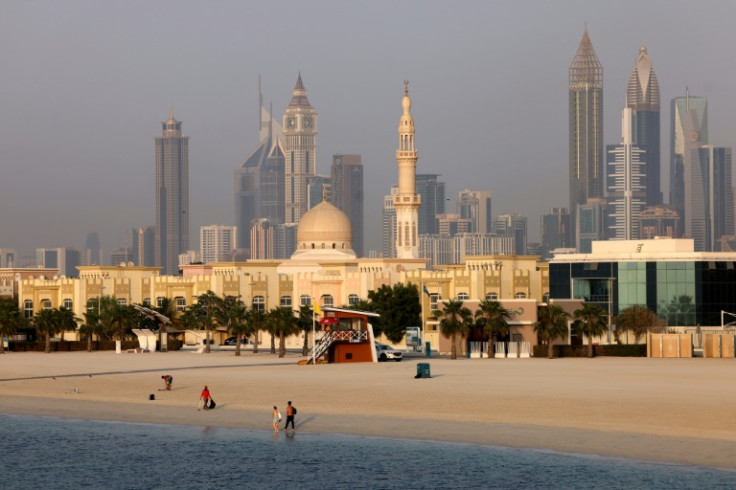UAE Economy To See Faster Growth In 2024: IMF

KEY POINTS
- For 2022, IMF initially pegged UAE's growth at 5.1% in October but the numbers increased to 7.4% according to its latest World Economic Outlook (WEO) released on Tuesday
- The UAE Central Bank earlier projected the country's real GDP growth for 2023 at 3.9%
- IMF said the global economy is "at a highly uncertain moment" yet again due to the cumulative effects of the pandemic and Russia's invasion of Ukraine
The UAE Economy is expected to increase at a faster pace in 2024 at 3.9 percent compared to 3.5 percent this year, the latest report from The International Monetary Fund (IMF) said.
For 2022, IMF initially pegged UAE's growth at 5.1 percent in October but the numbers increased to 7.4 percent according to its latest World Economic Outlook (WEO) released on Tuesday.
This year, the economic growth forecast is seen at a downward trend of 0.7 percent from 4.2 percent in October and even to 3.5 percent on Tuesday.
The UAE Central Bank earlier projected the country's real GDP growth for 2023 at 3.9 percent according to this report.
S&P Global, a private company providing financial information services to capital and commodity markets worldwide, echoed a similar analysis in its latest report as cited by Global Business Outlook in February. According to S&P Global, UAE's economic growth will moderately slow down in 2023 mainly due to oil output cuts agreed by OPEC+ member countries. Moreover, the report said there will be a slowdown in the non-oil sector as a result of increased interest rates.
This will result in less loan demand and growth for banks coupled with a tighter monetary policy, the report said.
Early this month, Saudi Arabia and other OPEC+ oil producers announced additional oil cuts of around 1.16 million barrels per day. This brings the total oil cuts to 3.66 million bpd which equates to 3.7 percent of global demand according to Reuters.
"As oil-linked activities will shrink on the back of OPEC-agreed cuts, we expect real GDP growth to slow in 2023. The positive performance of some non-oil sectors, including tourism, hospitality, and manufacturing will drive non-oil economic growth, albeit slower than last year," S&P Global financial analysts Puneet Tuli and Mohamed Damak said.
Also in the latest WEO, IMF said the global economy is "at a highly uncertain moment" yet again due to the cumulative effects of the pandemic and Russia's invasion of Ukraine.
"Spurred by pent-up demand, lingering supply disruptions, and commodity price spikes, inflation reached multidecade highs last year in many economies, leading central banks to tighten aggressively to bring it back toward their targets and keep inflation expectations anchored," the WEO said.
"Although inflation has declined as central banks have raised interest rates and food and energy prices have come down, underlying price pressures are proving sticky, with labor markets tight in a number of economies," it added.
© Copyright 2023 IBTimes AE. All rights reserved.



















